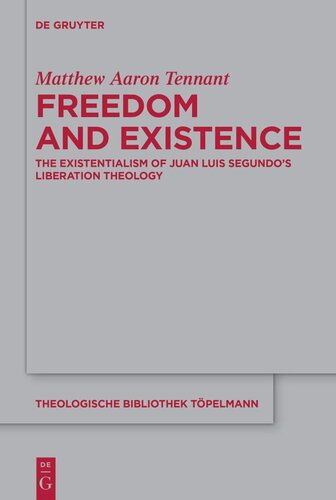

Most ebook files are in PDF format, so you can easily read them using various software such as Foxit Reader or directly on the Google Chrome browser.
Some ebook files are released by publishers in other formats such as .awz, .mobi, .epub, .fb2, etc. You may need to install specific software to read these formats on mobile/PC, such as Calibre.
Please read the tutorial at this link: https://ebookbell.com/faq
We offer FREE conversion to the popular formats you request; however, this may take some time. Therefore, right after payment, please email us, and we will try to provide the service as quickly as possible.
For some exceptional file formats or broken links (if any), please refrain from opening any disputes. Instead, email us first, and we will try to assist within a maximum of 6 hours.
EbookBell Team

4.3
58 reviewsIs theology a dead corpse or living organism? For Uruguayan Jesuit Juan Luis Segundo (1925-1996), theology is dynamic. Freedom and existence for central themes. Segundo believed that theology should be transformative in human lives. For a theology to be transformative, there must be a connection to existence. That is, it must be existential. Yet most scholars have overlooked this assumption in critical analyses of liberation theology. This prima facie connection to existence is distinguishable from existentialism as a school of philosophy. By showing the significant existential dimension to Segundo's theology, assessing his work and contribution to twentieth-century theology relates to freedom, ecumenism, the role of faith in society, and the relationship between faith and ideologies.